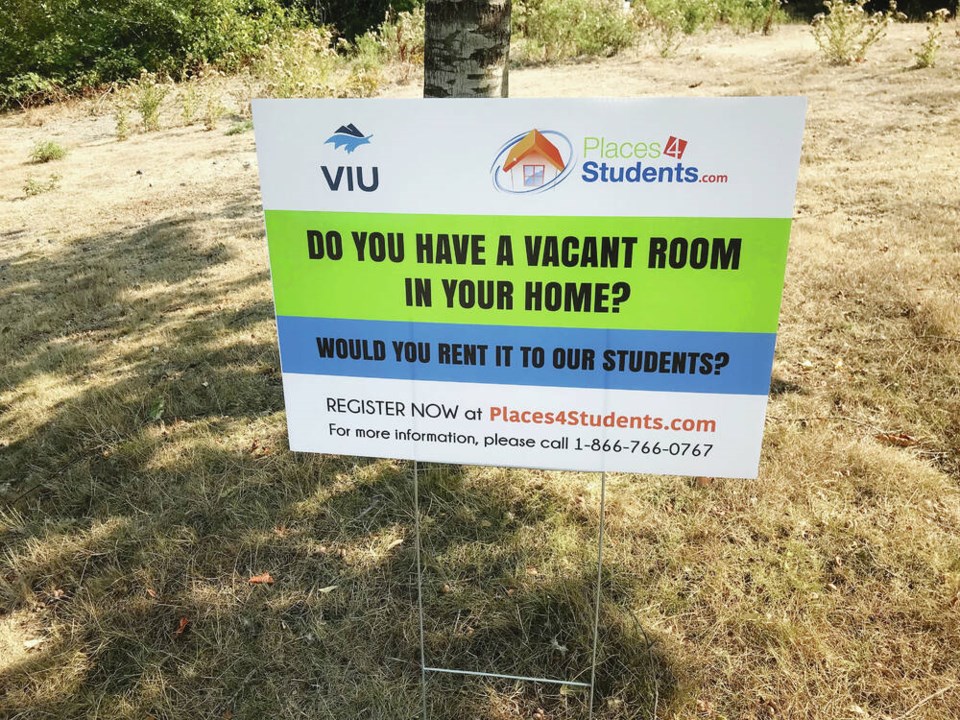As post-secondary students scramble to find homes before the school year starts, a lawn-sign campaign in Nanaimo is proving its worth.
Michael Witcomb, off-campus housing coordinator at Â鶹´«Ã½Ó³»Island University, is encouraging homeowners to offer rooms in their homes to students, using lawn signs and social media to spread the message.
He received plenty of offers from people with spare rooms who were interested in renting, he said. The rooms go for about $700 to $900 a month.
“It’s not the traditional rental property, but it might be somebody who’s got a son or daughter of their own who’s moved out to university,” he said.
For homeowners, the rental arrangement is not only an opportunity for some extra income, but it can be a chance to meet people from different countries and cultures, as the majority of students who contact Witcomb for help are international students, he said. Witcomb has heard stories from homeowners who enjoyed learning to cook new dishes from their student renters, and even from a couple of landlords who visited the students in their home countries.
It’s one creative solution to an increasingly tight and expensive rental market. The vacancy rate in Nanaimo is about 2.2 per cent, according to a 2023 city report on the state of the economy. The average one-bedroom unit in Nanaimo was $1,230 in October 2022 and $1,700 in Greater Victoria, according to the report.
It’s important for people considering renting a room in their home to understand that the rental arrangement isn’t subject to the Residential Tenancy Act, said Hunter Boucher, vice-president of operations at LandlordBC. The act does not apply when someone rents a room in the home they own and live in, and where they share a communal space with the renter.
That means neither the landlord or renter have protections under the Residential Tenancy Act and they’ll need to create their own agreement to set their own rules, like defining how much notice is required to end the tenancy and when the landlord can enter the tenant’s space, Boucher said.
The majority of this type of rental arrangements have no issues, he said, but it can be a more difficult environment to operate in if something goes wrong, because there is no support through legislation.
Boucher said he would recommend hiring a lawyer to help craft a rental agreement for a shared accommodation tenancy.
Witcomb does offer people considering this type of rental agreement a document that’s similar to a tenancy contract under the act and helps to set out clear expectations about the use of shared spaces.
Witcomb’s email inbox fills in mid-August with people looking for support with their housing search. While it’s starting to calm down, he still has about 80 people who haven’t confirmed they have a place to live.
As a short-term measure, Witcomb has had some luck appealing to hotels to offer discounted rates for students who don’t have a long-term solution and need to stay for a few weeks while they continue their search.
In Greater Victoria, Camosun College is working towards creating its first on-campus housing in partnership with the province.
“While the majority of students at Camosun College already reside in the Capital Regional District we know that finding affordable housing is a serious challenge,” a college spokesperson said, and on-campus housing will create more affordable housing options for students.
>>> To comment on this article, write a letter to the editor: [email protected]



